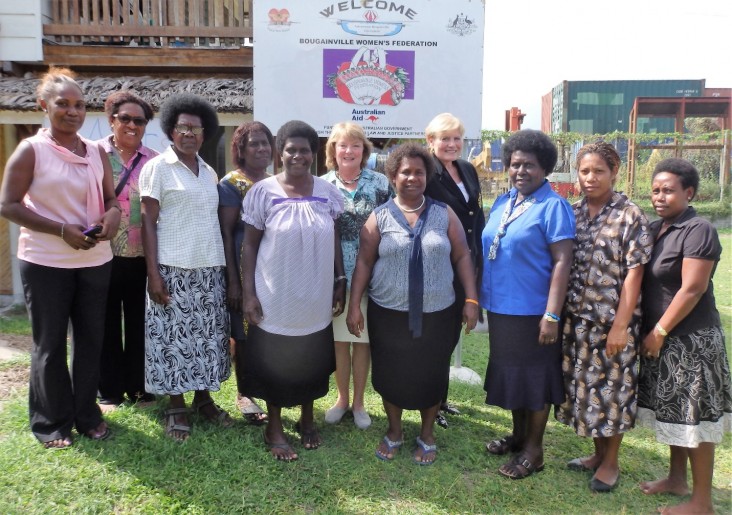
For Immediate Release
U.S. Ambassador to Papua New Guinea, Solomon Islands and Vanuatu, Hon. Catherine Ebert-Gray, and U.S. Agency for International Development (USAID) Mission Director for the Philippines, Pacific Islands, and Mongolia, Dr. Susan Brems, visited Bougainville on August 22-23, 2016 to meet with partners of ongoing U.S. Government support in the region.
During their visit, Ambassador Ebert-Gray and Mission Director Brems met with representatives of the Autonomous Region of Bougainville Government, the Office of the Bougainville Electoral Commissioner, and the Department of Referendum, Veteran’s Affairs, and Peace, to learn about ongoing preparations for the elections and the referendum. The Governments of Papua New Guinea and the Autonomous Region of Bougainville have recently agreed on a target date of June 15, 2019 for an independence referendum to determine the status of Bougainville, as set out in the Bougainville Peace Agreement.
“The U.S. Government and Papua New Guinea are strong partners in achieving sustainable and inclusive economic growth in the country. We are committed to working with the people of Bougainville to prepare for upcoming electoral events that are open, transparent and peaceful,” Ambassador Ebert-Gray said.
To support these events, the U.S. Government, through USAID, launched the Peaceful and Inclusive Elections and Referendum (PIER) project in February 2015. The PIER project, implemented in partnership with the International Foundation for Electoral Systems, is increasing awareness of, and supporting preparation for, electoral processes. USAID, through the PIER project, provides technical assistance and training to referendum and election administration officials, and promotes women’s participation in politics, decision-making bodies, and conflict mitigation.
Ambassador Ebert-Gray and Dr. Brems also consulted with women leaders from civil society organizations. The women had participated in USAID-supported advocacy and communication training, and the meeting served as an opportunity for them to share how USAID can further support their contributions to reconciliation and peacebuilding.
At the meeting, Mission Director Brems remarked, “Women are proven to be effective peacemakers, community leaders, and champions of civil and human rights. We continue to work with our partners to unlock the potential of women to inspire and lead development in their communities.”
While in Papua New Guinea, Dr. Brems also led the signing of a new project assistance agreement between the United States of America, acting through USAID, and the Independent State of Papua New Guinea that grants $1.5 million from USAID to strengthen Papua New Guinea’s environmental resilience. The agreement is aligned with Papua New Guinea’s priorities to conserve biodiversity, improve its management of natural resources, and adapt to climate change.







Comment
Make a general inquiry or suggest an improvement.